Canada defies Trump and will recognize the Palestinian state. What does this decision mean for the war in Gaza after announcements by France and the United Kingdom?

International pressure against Israel over its intense offensive in the Gaza Strip, whose death toll has already exceeded 60,000 (mostly civilians), has led three of the largest Western powers to announce their recognition of the State of Palestine, an action that, beyond its symbolism, represents a new stance of pressure against the Hebrew state.
Following France's announcement last week, where President Emmanuel Macron said he would recognize Palestine in September during the UN General Assembly, the United Kingdom and Canada recently joined in, announcing they would also formalize their decision by the same date.
However, British Prime Minister Keir Starmer made recognition conditional on Israel "taking substantive steps to end the terrible situation in Gaza, reaching a ceasefire, and committing to a long-term peace process that delivers a two-state solution."

The humanitarian crisis in Gaza has sparked international condemnation of Israel. Photo: AFP
And this Thursday, Canada announced it would join the decision. Prime Minister Mark Carney justified the measure as a response to the "unbearable suffering" caused by the Israeli blockade of food supplies to Gaza.
Verbal condemnations from foreign states have no effect on Israeli governments.
This situation has led 90% of the enclave's population (around 1.8 million) to live under critical food conditions , which has claimed the lives of 154 people from malnutrition since the war broke out in October 2023, including 89 children.
And support for the so-called two-state solution (one Israeli and one Palestinian) received further impetus after 15 countries announced their intention to recognize Palestine, in addition to inviting the rest of the world to do so. The document, signed by the foreign ministers, lists nine nations that have not yet recognized Palestine: Andorra, Australia, Finland, Luxembourg, Malta, New Zealand, Portugal, and San Marino.
For Margarita Cadavid, an internationalist at the Universidad del Rosario and an analyst on Middle Eastern issues, these announcements seek to pressure "toward recognition for a negotiation between the two states."
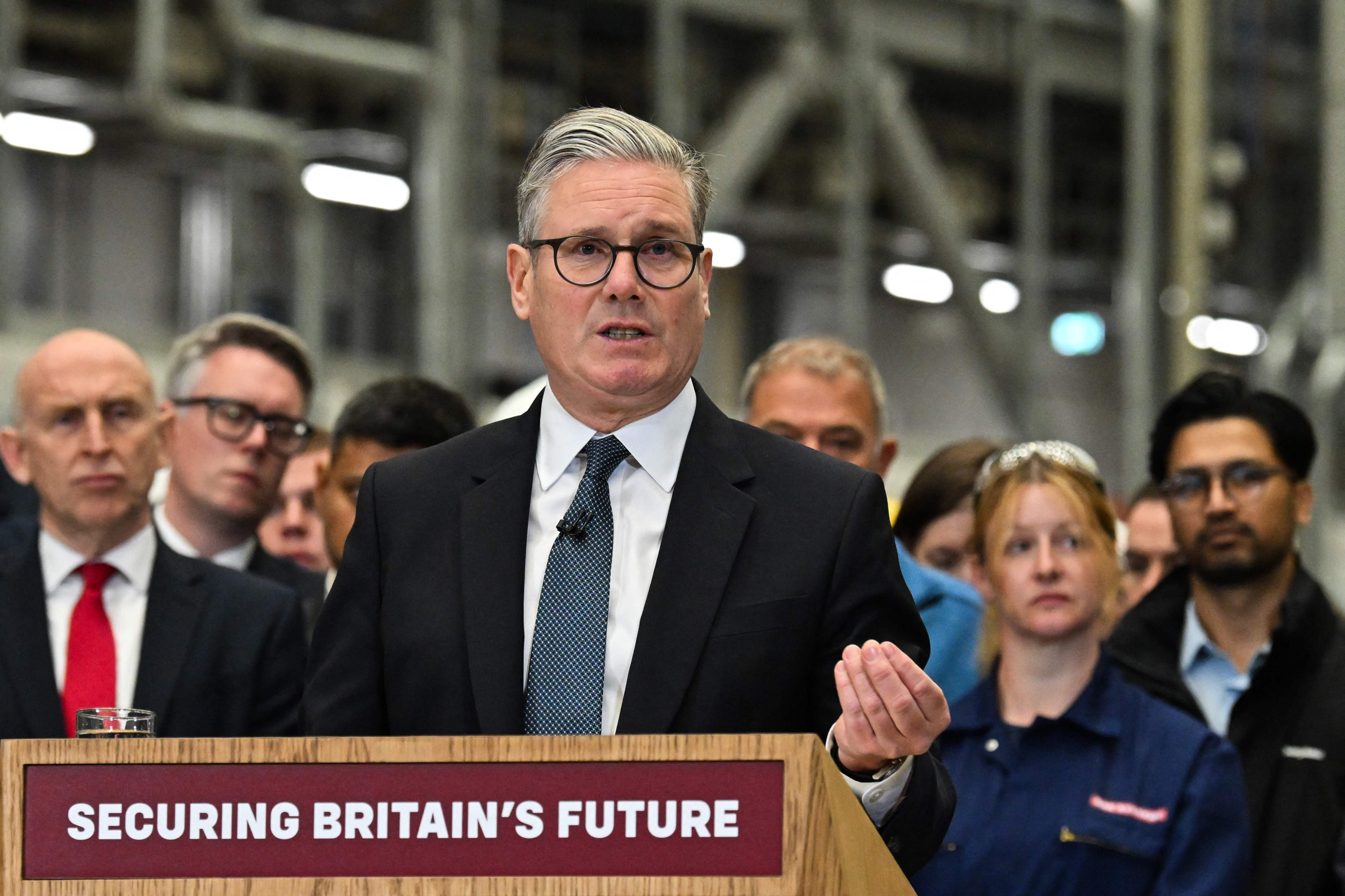
British Prime Minister Keir Starmer announced that he will recognize Palestine as a state. Photo: AFP
" This is basically due to the escalation of acts of genocide that Israel is committing, subjecting the population to a state of famine. Civil society and international public opinion are seeking to move their leaders from attention-seeking to concrete action," says the analyst, who affirms that more recognition will almost certainly be given at the Assembly.
How is a State recognized? State recognition is a lengthy process that must meet criteria specified in the 1933 Montevideo Convention: a permanent population, a defined territory, an effective government, international relations, formal diplomatic processes, including embassies, ambassadors, and treaties, and, most importantly, peer recognition.
And although Palestine serves as an observer at the UN and is already recognized by most nations (147 of the 193 UN members), its entry is not yet official.
Countries typically submit their request to the Secretary-General, who then forwards it to the Security Council for initial review and possible voting.
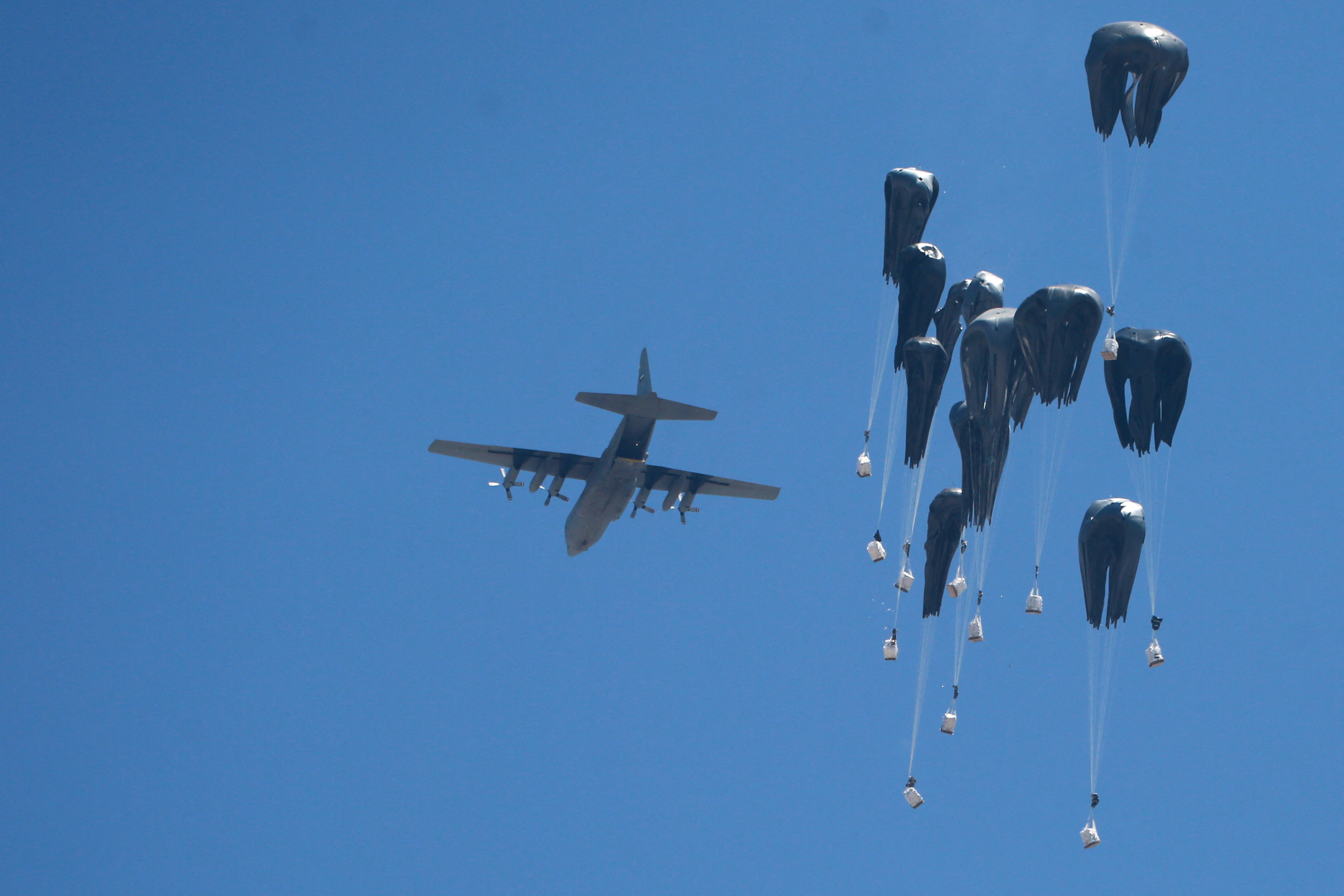
A military transport plane drops humanitarian aid over the northern Gaza Strip. Photo: AFP
Approval requires at least nine votes in favor and no vetoes from the permanent members: the United Kingdom, the United States, France, Russia, or China. If the Council approves the request, it goes to the General Assembly for approval, where a two-thirds majority is required.
And in the case of Palestine, while a majority in the Assembly is possible, the biggest obstacle is the Security Council. The United States has expressed its firm veto on the formation of a Palestinian state. Without that support, the initiative cannot prosper.
However, if the intentions of the United Kingdom and France are combined, this would mean that, with Russia and China already recognizing Palestine, the United States would be the only permanent member of the Security Council not to support the decision, making it more isolated and having a more difficult position to defend amid the growing rejection of Israeli actions in Gaza.
What we're seeing are the limits of the international system's ability to stop the Israeli war machine. It operates through American hegemony.
Although analysts see global recognition of Palestine as still far from being achieved, the recent endorsements by France, the United Kingdom, Canada, and the other 13 countries, beyond their symbolism, also represent a series of key changes.
The New York Times explains that a country that recognizes Palestine "must review its agreements with Israel to ensure they do not violate its obligations to the Palestinian state." This would apply to all aspects of relations, whether cultural, economic, political, or civil.
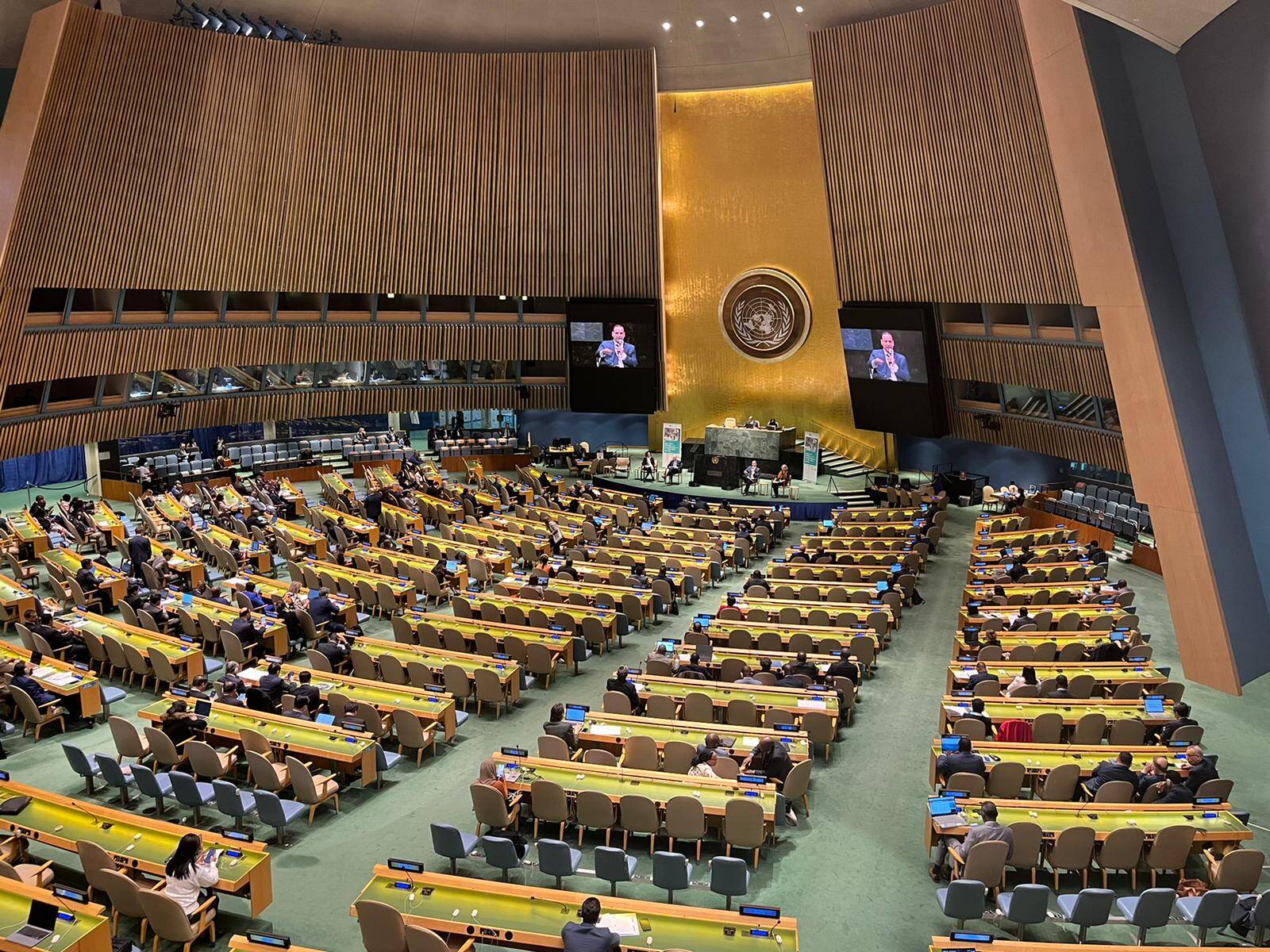
To officially recognize a state, its application must be approved by the UN General Assembly. Photo:
"For example, if any aspect of trade aids or assists Israel in violating Palestinian state rights, then the nation that recognizes it would have to cease that exchange," the paper explains.
Likewise, for Dr. Cadavid, the recognition of Palestine "demonstrates a diplomatic isolation of Israel, which is losing traditional support and allies."
Civil society and international public opinion are seeking to have their leaders shift from attention to concrete actions.
Beyond what recognition from these countries might achieve, experts consulted by EL TIEMPO emphasize that, as long as the United States continues to support Israel, real effects, such as a de-escalation in Gaza, will be very difficult to achieve.
Beyond the support, President Donald Trump has expressed his rejection of his allies' recent announcements to recognize Palestine.
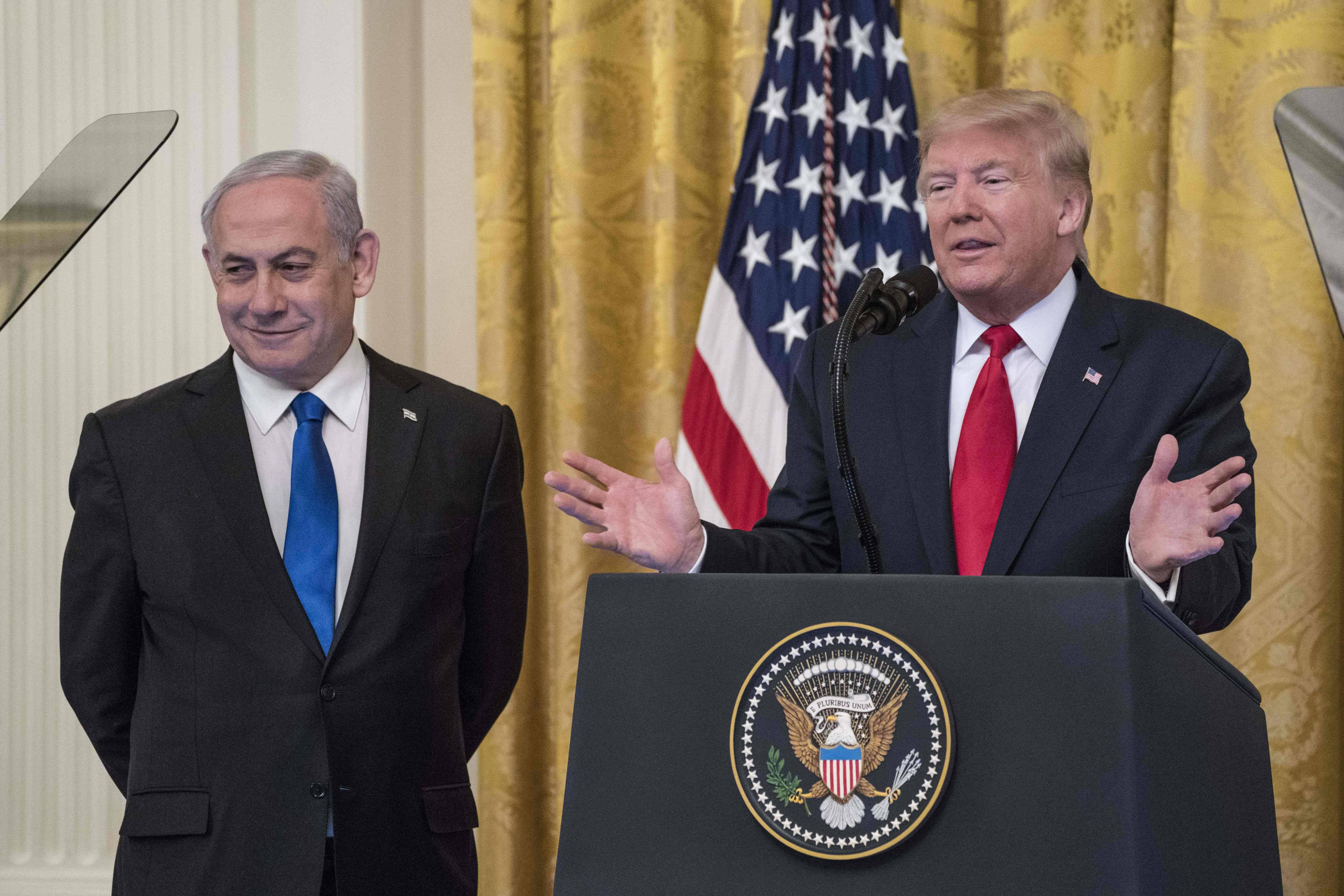
US President Donald Trump and Israeli Prime Minister Benjamin Netanyahu. Photo: AFP
"If they do that, they'll be rewarding Hamas. I don't think they should be rewarded," Trump said after the UK's announcement. Then, following Canada's decision, the Republican tycoon warned that it would "make it very difficult to get a trade deal."
If the United States is fully in favor of arming Israel, they will continue (with the operations in Gaza)
Even beyond backtracking, the Republican administration announced visa restrictions on members and officials of the Palestine Liberation Organization and the Palestinian National Authority, for alleged breaches of diplomatic commitments and continued "support for terrorism."
“As an observer of events between Israel and Palestine since the 2000s, I can say that verbal condemnations from foreign states have no effect on Israeli governments,” Dr. Bezen Balamir Coskun, an international expert on foreign policy and Middle East security, told this newspaper.
For the doctor, only if President Trump joins international leaders in condemning Israel, "this strategy could work. Otherwise, verbal reactions have no effect on Israel."
Along the same lines, Dr. Dana El Kurd, a researcher at the Arab Center in Washington, explained that, despite growing international protest, "if the United States is fully in favor of arming Israel, they will continue" with their offensive in Gaza.

Men walk carrying sacks of flour stolen from a truck in Khan Yunis. Photo: AFP
For the experts consulted, the key to halting the offensive in Gaza lies not only in diplomatic gestures from countries like Canada, France, and the United Kingdom, but also in a decisive shift from Washington.
In the words of Ricardo Marzuca, a historian and academic at the Center for Arab Studies at the University of Chile, " as long as the United States doesn't stop Israel, it will have the go-ahead to finish what it says it wants to do: commit genocide and ethnic cleansing in Gaza."
A view shared by El Kurd, who warns that the real power to stop it is limited by the very design of the international system: “ What we are seeing are the limits of the international system to stop the Israeli war machine. It works through American hegemony .”
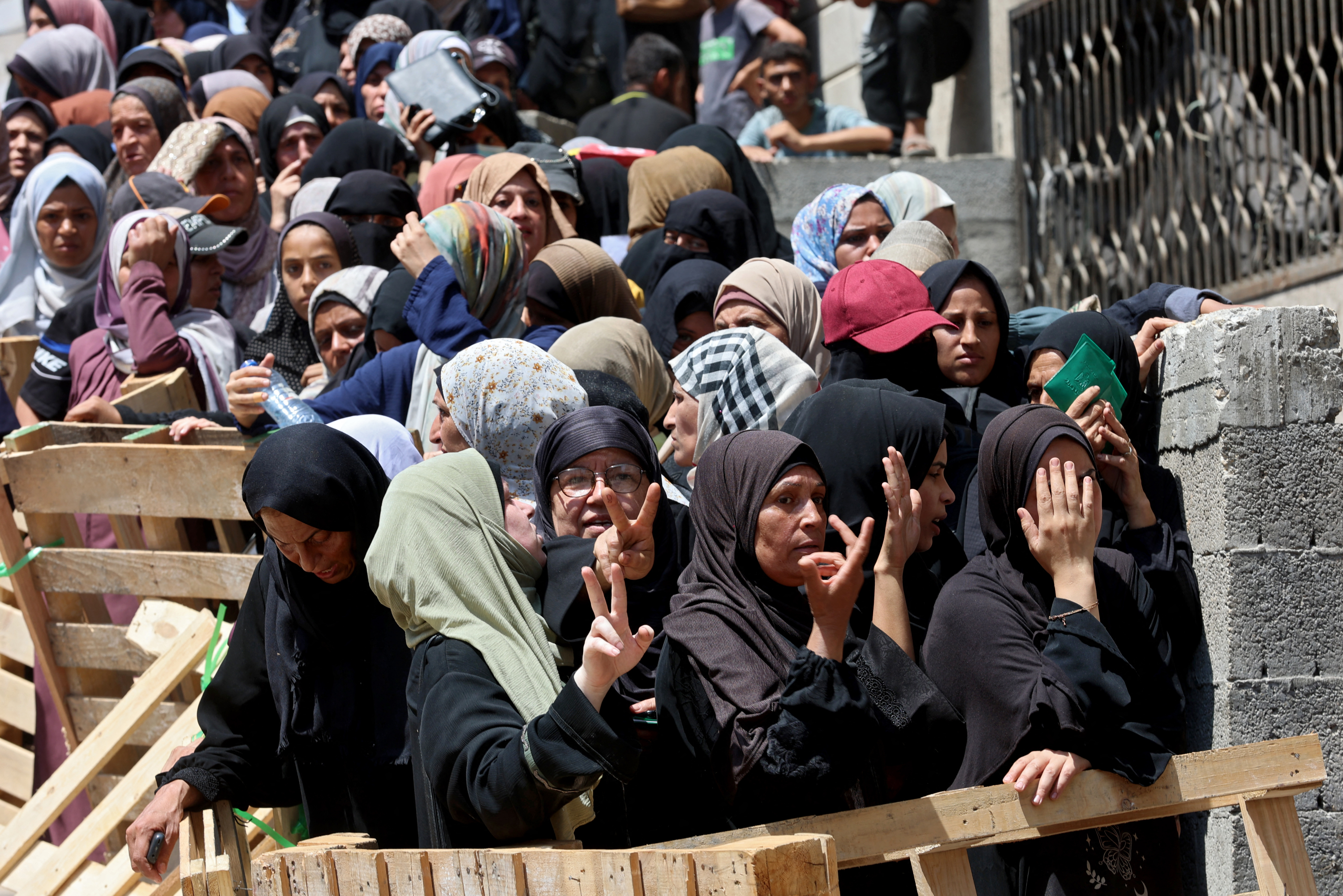
Experts insist that more concrete measures are needed to exert effective pressure on Israel. Photo: AFP
For her part, Cadavid insists that countries must implement economic sanctions to halt the Israeli offensive. Among the measures, the expert suggests adopting those used to end apartheid in South Africa: an economic embargo, a suspension of arms sales and events, as well as applying pressure to achieve negotiations between the two states.
In this sense, recognition of the Palestinian state by long-standing US allies may have significant symbolic and diplomatic value, but it will hardly be enough to stop the war without a real shift in the White House's stance, which for the moment appears to have no intention of changing.
eltiempo





